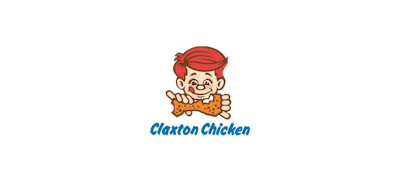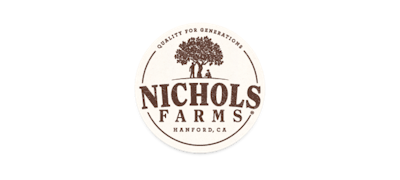The plant floor is a rich source of valuable data. While trends and patterns are available to tell an important story about daily performance and other key metrics, they aren’t easily accessible for many manufacturers. Tapping into quality and production insights using traditional paper-based processes is impossible, and leaves decision-makers with little to no visibility for driving continuous improvements.
For Lincoln Premium Poultry (LPP), things are different. Just under a decade old, the company knew they wanted to create a transparent workplace from the start, where their people would be empowered to explore tangible data and voice their thoughts. Digital Plant Management has enabled this and much more, ensuring employees in every role can partake in meaningful conversations.
Read on to find out more about how Lincoln Premium Poultry leveraged thoughtful training programs, digitization, and a data-driven approach to overcome a unique set of challenges, including:
- High employee turnover
- Limited visibility into key data for decision making
- Inefficiencies in paper-based processes and spreadsheets
And, discover how SafetyChain presented an opportunity for digitization which led to massive improvements, from reduced turnover to more than $200K in monthly savings, as well as a safety culture fueled by data that unlocked numerous achievements.
Industry Awards
- 2023 Occupational Excellence Achievement Award (NE Safety Council)
- 2023 Nebraska’s Safety Company Award (NE Safety Council)
- 2022 Peak Performance Award (NE Safety Council)
- 2022 Ag Innovator of the Year
- 2022 Nebraska Manufacturer of the Year (NE Chamber of Commerce)
- 2020 Workforce Game Changer Award (Fremont Area Chamber of Commerce)
- 2020 Livestock Industry Appreciation Award
About Lincoln Premium Poultry
Rotisserie chicken has long been considered one of the premier products offered by wholesale giant Costco. Unfortunately, sourcing consistent bird size had become increasingly difficult in the 2000s. In 2015, leadership made the groundbreaking decision to establish Costco’s own dedicated poultry operation in Nebraska: Lincoln Premium Poultry.
Now, the company employs more than 1,200 people across its various sites, including its corporate location, plant, hatchery, and feed mill. Having the space and personnel has enabled them to process an incredible 2,000,000 birds per week.
A Desire to Be Different
Being a young company certainly comes with growing pains, but it’s not without its advantages. Having a blank slate allows leaders to establish and align their team on a common vision, for instance.
From day one, the Chief Operating Officer Walt Shafer envisioned LPP as being different from all other poultry facilities. He aspired to create an environment in which employees feel valued, respected, and welcome to communicate their needs.
But this would mean confronting certain challenges, including:
- Negative misconceptions about meat processing
- High turnover across all personnel, as well as a 104% turnover overall in the poultry industry
- A need for digitization
The increasing need for a digital solution revealed itself over time, as a lack of visible data made it difficult to access trends and glean insights across all of LPP’s operations. To drive decision making and improvements — and to realize the goals they had for the company — they’d need a different approach.
Empowering the Plant through Data & Digitization
Like many facilities, LPP faced inefficiencies using outdated paper-based systems and spreadsheets. In one program, only a single user could be logged in at a time, creating barriers to collaboration and productivity. There was also a lack of user-friendly features and visibility; data silos and clunky systems added time and extra work for hourly team members and management alike.
Recognizing an opportunity to streamline their processes, LPP decided to leverage Digital Plant Management, starting in their Quality Assurance (QA) department. The success they witnessed there led them to deploy training and development programs powered by SafetyChain, and ultimately, they applied digitization nearly everywhere.
“Now, we use it across the plant, including our production team, maintenance team, and safety. We use it at the feed mill, at the hatchery, and at our live sites — even out on the farms.”
Types of Data LPP Collects with SafetyChain
Data empowers people to make decisions on the spot and creates transparency so everyone can access performance insights. Virtually any type of data can be collected and tracked in SafetyChain. Here are a few examples of the metrics LPP collects:
Quality
- Antibiotic usage
- Animal welfare audits
- Scale calibrations
- Product grading
- Microbial testing
- Bird quality, including health and weight
Compliance
- HACCP checks
- USDA audits, including a secure profile for onsite auditing
- Label verifications
Safety
- Safety observations & Inspections
- Safety checks at the feed mill and hatchery
- Sanitation pre-op checks
Operations
- Yield Efficiency, with daily floor controls and hourly goals reports Machine effectiveness SOP reviews
- Maintenance data, including:
- Operator checks
- Startup task & Tear-down checklists
- Downtime tracking
- Payments to growers
Putting People First with Data-Driven Programs
Leaders at LPP have always maintained that their people are the company’s greatest asset, and are committed to treating them as such. Digitization had already driven efficiencies and increased visibility in QA, so applying Digital Plant Management in a way that would further improve the workforce culture just made sense. So, they sought to leverage the platform to power the following programs and give their people a voice.
Touchpoint Program
Designed for new hires, the Touchpoint Program features questions on topics like safety, departmental hierarchy, and general job knowledge. Responses are collected and scored in SafetyChain, alerting HR and training teams of nonconformances and providing insights into any areas where an employee could use some extra coaching or assistance.
Example questions from LPP’s Touchpoint Program include:
- Do you feel safe in your job?
- Do you have the necessary tools and PPE to do your job?
- Do you know who your department manager is?
- Is there anything outside of work we can help you with?
Originally, the Touchpoint Program was implemented via paper and spreadsheets. “It just wasn’t going anywhere,” says Cindie. Now, Digital Plant Management enables them to touch base with new hires consistently as they ease into their roles. “When we touch base with them, we put that data into SafetyChain. We get notifications so we can review the data and drive changes in the right direction. It really helps to build a good culture.”
Job Hardening Program
While the Touchpoint Program focuses on creating a supportive culture for new hires, the Job Hardening Program is a skills-focused companion. It helps new employees ramp up, adjust, and acclimate to their job tasks and work environment. Further, it allows supervisors to get to know their new employees by checking in on them daily.
During each shift, supervisors complete a daily check-in to:
- Ensure the Job Hardening program is being followed
- Verify the availability of PPE and necessary tools
- Communicate back to Training and Development personnel with any issues that may call for additional training
While programs vary across different roles, in general, they last about 18 days and encompass orientation, tour, and observation phases. Employees gradually begin taking on more responsibilities, and a designated team member checks in on them to ensure they’re completing their tasks.
Safety Observation Program
A collaborative program between supervisors and hourly employees, the Safety Observation Program focuses on safety checks. Both parties record observations of:
- Environmental hazards
- PPE use
- Behaviors
All checks are recorded in SafetyChain, and appropriate teams are alerted on any areas that need attention via notifications. This allows them to recognize and resolve findings in real time, and has created open communication among team members and management.
Successes (So Far)
The people at LPP know that true digitization isn’t just about collecting data, but using it to increase transparency, communication, and collaboration. Through this innovative approach, they’ve realized incredible successes already, and have plans to implement Digital Plant Management in even more ways in the future.
Here are just some of the most noteworthy benefits LPP has seen so far.
Touchpoint Program Successes
- 537 employees have completed the program.
- The program has sustained a 98% pass rate within the last three months.
- The new hire rate has dropped to 26%, compared to 56% pre-program.
- Company-wide turnover is now just 37%, a staggering difference from the 104% industry average.
Job Hardening Program Successes
- Reports of “break-in pain” among employees have dropped by 60%.
- The overwhelming majority of those who do report issues were not following the Job Hardening schedule, indicating the program’s success in welcoming employees into their roles.
Safety Observation Program Successes
Though perhaps not quite as tangible as the benefits seen in the Turnover and Job Hardening Programs, the Safety Observation Program has led to its own meaningful improvements. For one, it has facilitated open and ongoing communication between management and hourly programs.
Here’s one example: Employees felt comfortable addressing long apron lengths with their supervisors. They cited concerns over trip hazards, and shorter aprons were provided as a result. Not only has the program facilitated real-time problem-solving, but it also demonstrates how employees’ voices are being heard.
Successes from Digitization Overall
Beyond specific programs, giving employees a voice and empowering them with the right data in general has created open and informed communication among team members. In one instance, an employee identified a need for a better cable on their machines, which would enable the plant to reduce their yield loss. This prompted management to look closer into the yield data being collected by SafetyChain.
Upon reviewing the numbers, they determined they were indeed facing a 24% yield loss. Not only did they provide the new cables, but they also launched an incentive program: If employees could maintain a yield loss of 8%, they’d receive a bonus.
Now, the yield loss has exceeded the original target and is down to just 6%. The result: $230,000 in lost revenue saved per month.
Downtime tracking is another area that has led to significant improvements. Ordinarily, operators record data about machine downtime. At LPP, however, maintenance technicians log downtime information into SafetyChain, putting the power in their hands. “I can’t tell you the amount of people who have been excited and thrilled to give their voices,” says Cindie of the change.
Logging downtime has also enabled maintenance to track issues across shifts. Common threads have emerged, making it easier for maintenance teams to identify issues and initiate preventative measures. In fact, the data has even been used to train new maintenance technicians on the most common issues for each machine and their fixes.
Not only has this initiative given maintenance team members a voice, but it’s also led to a 38% annual reduction in downtime, from 800 to 500 hours.
The Value of an Empowered Workforce
It’s safe to say that LPP has realized their goal of creating a poultry facility that’s truly different. Digital Plant Management has allowed their teams to improve in key areas like throughput, yield, and productivity, creating a standardized approach that can be applied consistently from the moment new hires are onboarded. Plus, teams proactively address safety issues, solving problems in real-time.
Most importantly, their programs have given everyone on the team a voice — from the COO to the production floor. “An emphasis on data collection and transparency is seen and felt across the entire organization,” says Cindie. From inspections to data exploration, Digital Plant Management has become the go-to tool to access tangible data with ease, fueling insights and pinpointing issues for immediate resolution. By using data-driven solutions to create a culture of support and loyalty, LPP has shown its people that their contributions are valued, and their feedback is welcome.
Results like industry-low turnover rates and immense monthly savings speak for themselves, and underscore the importance of a strong workplace culture. With Digital Plant Management empowering the workforce, Lincoln Premium Poultry has created a passionate and progress-driven culture with limitless potential.


